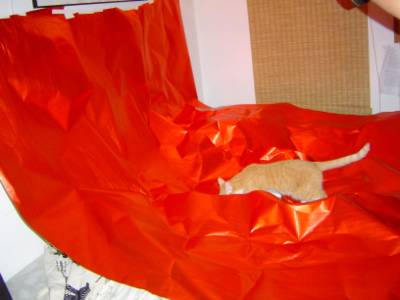The moon's not full...
But those days happen. And my lesson was one that is always really difficult - choosing partners and brainstorming testable questions for the Science Expo.
What pushed the day over the edge from just tiring to plain infuriating was the bad behavior of a group of adults who came to visit.
Last week, a couple of Local Instructional Superintendents who work with our LIS came by to see if they could bring anything that we do back to the schools they work with. Today, one of them returned with three or four teachers and the principal of one of her schools, which is apparently somewhat similar to ours but in its first year and struggling, I'm not sure of the details.
So, our AUSSIE consultant - who was not responsible for their visit - brings them around to my classroom a few minutes into my second period class. By that time I'd already figured out that it was going to be challenging keeping the kids reasonably quiet and on-task. These five adults come to stand in the back of my classroom, and then proceed to TALK TO EACH OTHER while I'm trying to teach, keep the kids focused, etc. I'm admonishing the students to be quieter, when I realize that at least some of the noise comes from the adults in the room!
A few minutes later, the group leaves, except for one woman, who is apparently a science teacher. I have the kids working with partners to come up with possible questions, but the room is loud because they are all with their best friends - they get to choose partners freely for the Science Expo. The visiting teacher came up to me and started asking me questions about what I teach, the school, etc. I was friendly and answered her questions as briefly as possible, finally handing her a binder full of projects that we've done, but inside I was just astounded that she would interrupt me in the middle of my lesson to ask - quite frankly - stupid, basic questions about the school that could have been answered by any number of other adults in the building who were not at that time teaching!!! Then she asked for directions to the other science teacher's room, and I had to walk her into the hallway to send her in the right direction. GRR.
She came back later in the day during health class and proceeded to ask me more questions while I was teaching. Again, I was friendly enough but shocked by the thoughtlessness - would she like it if I did the same during one of her lessons? This time, she also asked if I wanted any help. I know that was probably good intentioned, but by this point, all I could think was, lady, I just met you two hours ago, what gives you the right to offer to help when so far you've given me no reason to think you know how a classroom works?
I would have just let it go and chalked it up to my own so-so day, but then at lunch, I heard another teacher telling a similar story. That was that; I told our AUSSIE that we needed to talk and informed her of all that had happened and how it had made us feel as teachers. She was sympathetic and said she'd talk to the LIS about it so that future visits won't be so dreadful. I am going to draft a list of "visitor guidelines" to put in the "welcome book" that we are supposed to create now that we have been selected as a "mentor school." No one can really explain what it means to be a mentor school, because its a new DOE program, but we are likely to have lots more visitors over the next weeks and months, and we have got to communicate to them our expectations for how they will act during their visits, since, apparently, it is NOT common sense.
Just in case you ever visit a school:
- Generally, no more than two people should observe in a classroom at one time, and one would be best.
- If you have something to say to your colleagues, wait until you leave the room.
- Don't come in and out - come in once, stay for however long you need to, then leave. Be discreet in how you open and close the door and how you move around the room.
- Whenever possible, schedule your visit. This is not so that we can roll out a dog-and-pony show, it's so that we can let the kids know that we will have visitors, why they are visiting, and how the visitors' presence should be acknowledged (if at all).
- There are times when it is acceptable to ask students what they are doing or to show you their work, but these are very specific circumstances and planned in advance. In my Region, we have "learning walks" where people visit and interact - discreetly - with students during the lesson, but there is PD that happens before these events and the teachers always know what to expect. In the past, I have invited guests to my classroom and encouraged them to help out with an experiment or ask questions of the kids in their groups - but these were always adults whom I had met before and trusted.
- You can glance around the room at bulletin board displays or student work, but for the most part, your attention should be on the lesson. Otherwise, your lack of attention sets a negative example for the students.
- Some teachers welcome visitors pretty much any time, if the visitors are respectful; other teachers get nervous when visitors arrive unexpectedly. Be mindful of that! How would you like it if someone you didn't know showed up and stood in the corner of your office while you worked?
- Do not talk to the teacher while he or she is teaching. If you have questions or comments, they will have to wait until that teacher is free.
- Finally, respect teachers' prep time. If a teacher needs her prep to plan lessons, make photocopies, or just decompress, she should not be expected to entertain you, answer your every question, give you a tour, or anything else, unless it was scheduled in advance.
Think "fly on the wall," not "elephant in the bazaar."
Oh, and did I mention that the school's boiler was broken, so we had no heat - NO HEAT - for the first hour or two of the day?

















